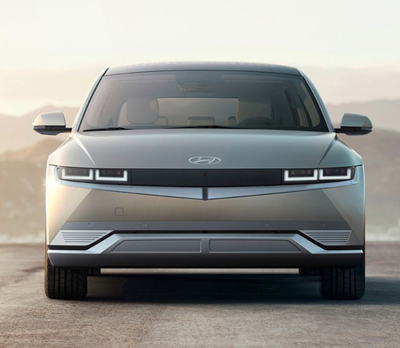Hyundai IONIQ 5 ICCU (integrated charging control unit) failures have caused at least 30 complaints and a federal investigation opened by the National Highway Traffic Safety Administration.
The 2022 Hyundai IONIQ 5 ICCU failure allegedly causes a loss of motive power, a loud pop noise and a warning on the dashboard.
NHTSA interviewed several 2022 Hyundai IONIQ 5 owners who confirmed the problems and said varying time intervals can occur from the time owners see warnings and when the SUVs lose power.
"I was doing a three-point turn in the driveway, and heard a pop sound from under the rear seats," one complaint said. "A warning light came on in the dash, after a little bit of time the warning changed into an error that stated pull the car over and do not drive. OBD sensor reported codes P1A90 and P0C17. Car also went into 'turtle' mode preventing it from being driven normally."
The 2022 Hyundai IONIQ 5 owner said the vehicle was towed to a dealer, where it stayed for two weeks waiting for technicians to inspect the SUV.
"Once they got to it, they quickly determined it was a blown high-voltage fuse, and a fault in the ICCU (integrated charging control unit)," the complaint said. "Was told there is a national backorder on the ICCU and no ETA on delivery. I was also told I am one of three Ioniq 5s waiting for a new ICCU."
Another 2022 Hyundai IONIQ 5 owner described the loud pop and the resulting loss of power.
"Driving car at 60 mph, we heard a bang from the rear of the car and lost power almost immediately," the complaint said. "Car displayed warning 'Check Electrical Vehicle System.' We shut it off, then restarted in limp home mode, warning now said 'Stop Vehicle and Check Power Supply.' The 12-volt battery no longer charges, the car will not accept a Level 2 charge. It was towed to Hyundai for repairs. Research suggests that the Integrated Charge Circuit Unit (ICCU) and the accompanying 450V/40 AMP fuse are both bad."
Hyundai said the failure is caused by the ICCU, which is responsible for powering the hybrid vehicle battery and the low-voltage 12-volt battery.
"Preliminary review indicates over-current within the ICCU...can damage transistors (FET) in the LDC (DC-to-DC converter) resulting in the inability to recharge the 12V battery," NHTSA said.










Abby Andrews